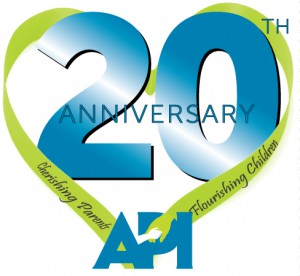Sometimes I think of our family as an airplane and my husband and I the co-pilots. We are responsible for our precious passengers, our children, and we do our best to fly over beautiful vistas, look out for bad weather and provide decent meals. We love flying our plane and help each other navigate, give each other time to rest when needed and hold hands when things get bumpy.

But as life would have it, my co-pilot has a job that takes him away from our family quite often. And so I have spent many hours in the cockpit of our family plane alone. I have though a lot about what to call this time when I am parenting without my husband. I have decided to call it Solo Parenting, as in Solo Flying. I am up there in the pilot seat in charge of all the controls. My passengers are my responsibility, and I am an expert at simultaneously looking for bad weather ahead, keeping the plane steady, all while preparing some tasty meals.
But the seat next to me is empty. What helps me about this metaphor is that although I am parenting by myself while my husband is away, I always feel his place in our family. I can see the empty co-pilot seat next to me, so to speak. We miss him, and although I can run the plane alone, it is so much more fun and less tiring to do as a team.
My children have always lived in a family where their mother is ever-present and their father is not. Because they do not have both parents available every day, we have worked hard to make the rest of their lives feel consistent and reliable. Little things add up to life feeling safe and predictable: songs to brush teeth by, games for getting on shoes, routines at night for snuggles and singing. Time for play and time for rest. Rhythms of a day and a week. Pancakes every Sunday morning, homework after dinner each night.
We don’t like it when Daddy is away, but we are used to it. Sometimes we need to say how hard it is and how much we miss him, while other times saying it out loud makes it worse. My job is to give my children the opportunity, but not the requirement, to express their feelings. They come up while drawing together, making up silly songs in the car, and at bedtime when thoughts from the day are shared.
We stay in touch as much as we can with modern technology. I tell them when I am sending Daddy messages and photos. They know their co-pilots are still a team even when Daddy’s seat is empty. But I’ve noticed that my children want to hear about Daddy more than to talk to him directly. I think it is because talking to him on the phone is not close enough. They want to sit on his lap and talk. They want to be chased and snuggled. The voice on the phone is a reminder that he is far away. So we don’t insist that they talk to him on the phone. Seeing him on a screen is easier, and they like to have him show the view from his hotel room. But these are short interactions, rarely a time for long conversations.
Transitions are tricky, and we have developed some ways to smooth the hellos and goodbyes. My husband always asks for help packing, and often our children sneak little love notes in when he is not looking. As he leaves, he always gives a round of hugs and then says, “Be good!” We answer, “You too!” and that makes us laugh.
Later in the day we check the map and talk about where Daddy is headed and what route he will take to get there. We find the spot he will be and trace back and forth from us to him. We talk about holding him in our hearts. Sometimes we get out the globe and talk about whether it will be dark for him when it is light for us and vice versa. This orienting helps make his absence concrete; he is not just gone, he is some place specific in the world, and we can see it on a map.
When he gets home, there are more hugs, and then he takes out postcards from whatever city he has visited. Each child gets a postcard, and we all sit together looking at them and listening to stories about my husband’s trip. The postcards go in a big basket to be looked at again and again, and eventually many are put up on the wall. This simple routine has become very powerful for reconnecting our family. It gives us a focus at the moment when emotions are high and everyone is tired. It gives us a reason to sit together and a chance to begin to tell the stories of our time apart.
Making room for my co-pilot to join me as a co-parent after an absence takes mindfulness on my part. I get used to doing everything, and so I have to remind myself to let him step in for the little things like helping wash hands, putting on shoes, going out to get the mail and peeling an apple.
We have a lot of family hugs in the days after he returns. We try to spend a day doing nothing in particular, giving us time to rest, play and be together with no agenda or time pressure. And we go on adventures together to celebrate our togetherness. But best of all, we continue the day in and day out rhythm of our lives, co-pilots holding hands and passengers dancing in the aisles, waiting for their next in-flight meal.
Editor’s note: Attachment Parenting International (API) hopes every mom enjoyed her Mother’s Day on May 10 and every dad is looking forward to Father’s Day on June 21. This week, in honor of all mothers, API gives you a special “Inspired Mothers” celebration. We hope these posts inspire you in your parenting journey.





